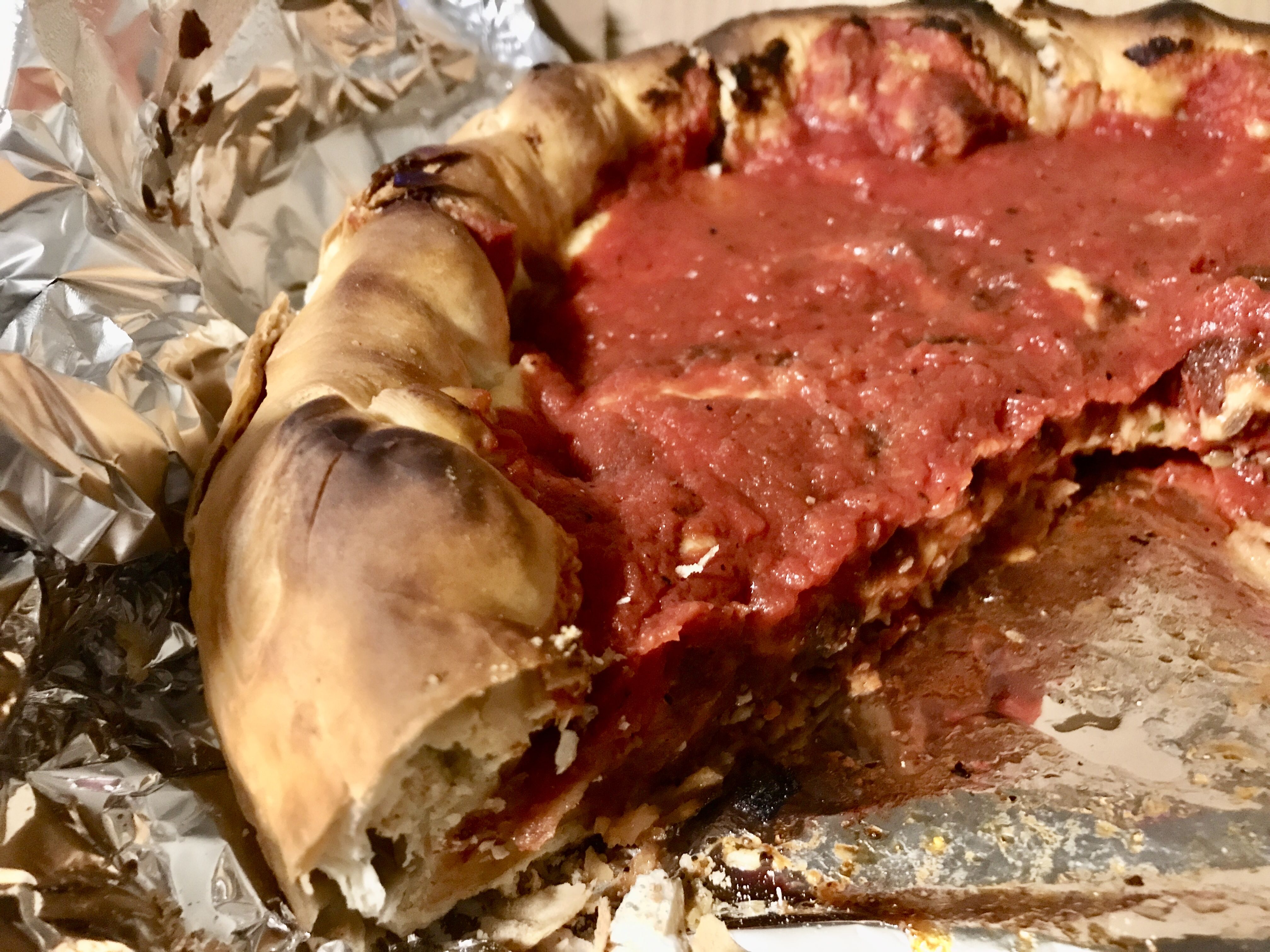‘Living in the round takes away the edges’: The Crestone Hobbitat (DG PRINT)
The Crestone Hobbitat, a unique house in the San Luis Valley characterized by flowing, curved walls, was a 17-year project by Jeff and Ruth Beard. Built with pumice-crete and inspired by the artwork of Antoni Gaudí, the one-bedroom, two-story home and Airbnb reflects the creativity of Crestone’s community, offering a quiet retreat with unconventional architecture. (Video by Skyler Ballard/ The Gazette)
CRESTONE • Sitting among the desert residences of Crestone is a white house whose structure flows like the neighboring sand dunes.
A harsh angle won’t be found here. Even the doors are arched.
The purposeful natural curves of the building make it feel soft. As the bending walls converge over the open space, it creates a spiral on the ceiling.
Some might label it as futuristic; others might see it as reminiscent of an older time. But it can’t be put into a box.
This is the Crestone Hobbitat. Seventeen years in the making, the project is the creation of Jeff and Ruth Beard.
“Living in the round takes away the edges,” Jeff said.
The couple started the project in 2008, after purchasing a house in Crestone. Jeff, an artist and freelancer, and Ruth, a retired nurse, originally used the home as a weekend getaway from Broomfield.
“I walked in and was just like the house hugged me,” Ruth said. “We would just use that house to come down and just collapse on the weekend. And we’d just get totally rested.”
But soon, they decided to make the move permanent — and dive into creating the Hobbitat on the property.
“It was in this ugly duckling stage for a long time,” Jeff said.
The idea for the Hobbitat started out as a space for Jeff’s art studio. Jeff, who considers himself a late-in-life artist, creates sculptures (some of which can be spotted around the Hobbitat) and dabbles in painting.
Made from pumice-crete, an aggregate of pumice stone, portland cement and water, the structure was built by Steve Kornher, who owns Guanajuato, Mexico-based Flying Concrete.
“The irony about the builder — his last name is Kornher,” Jeff joked. “It’s pretty much complete except for the north side. We ran out of time here because it’s a building that is temperature sensitive.”
Because of the material used to construct the Hobbitat, it’s expected to stand for the next 400 years — a fact that makes the estimated $400,000 that’s gone into building it a little easier to digest, Jeff said.
“I was writing a lot of checks and getting really, really depressed. But when I considered 400 years, I could prorate it — it didn’t seem so bad,” he said. “I guess I’ll have to be the ghost walking around to make sure that is the case.”
Kornher’s style and Jeff’s inspiration for the structure were heavily inspired by the work of Catalan artist and architect Antoni Gaudí, who employed similar designs with spirals and free-flowing walls.
“What you live in are cubes — and that’s not the way nature is. And that’s what Gaudí was dead set against. He was inspired by nature,” Jeff said. “Everything is wavy, curvy like in nature. Everything is that way. Man does everything in straight lines and building cubes.”
About two and a half years ago, the couple listed the home on Airbnb, hosting visitors from all around who wanted to experience the Hobbitat.
“It’s healing. People rest here. It’s very quiet in Crestone, and it’s just a very unusual, fluid building, and people just really enjoy themselves here,” Ruth said.
The one-bedroom, two-story home is warmed by a pellet stove, making it accessible throughout the seasons.
With features like Van Gogh-inspired mosaics that add a touch of color to the white walls, a mediation room and stunning blue tiles that cover the bathrooms, it’s easy to become engulfed in the details.
“People stop all the time to take pictures,” Jeff said. “It’s impractical. That’s art. If you wanted practicality, we’d never (have) anything on the walls.”
The location of the home is just as influential as the architecture. With lax rules, creativity is encouraged.
“Crestone is special … for that reason. They allow … experimentation,” Jeff said. “Some of it’s good; some of it’s not. But there’s something going on here.”
“Crestone was always that way, where you can kind of experiment. People are open to it, which can be exciting,” Ruth said.
This periodic feature spotlights unique properties in Colorado. Know of a house that stands out from the rest? Email kelly.hayes@gazette.com.
Husband and wife Jeff and Ruth Beard pose for a portrait inside the Crestone Hobbitat last month in Crestone. The house, which is 17 years in the making, started as a studio for Jeff in 2008 but has become a popular Airbnb rental.
The exterior of the Crestone Hobbitat. Owner and designer Jeff Beard’s inspiration for the structure was heavily influenced by the work of Catalan artist and architect Antoni Gaudí.
ABOVE: Inside the Crestone Hobbitat, visitors will find no corners. From the archways on the ceilings, to the build in shelving on the walls to the stairs, every feature is made with round, fluid-feeling edges. “Living in the round takes away the edges,” owner Jeff Beard says.
The Sangre de Cristo Mountains can be seen through the windows of the Crestone Hobbitat. (Parker Seibold, The Gazette)
RIGHT: The Crestone Hobbitat features one bedroom, a living room, a reading space, kitchen and a meditation room.
LEFT: Tile murals and windows on the exterior of the Crestone Hobbitat.








